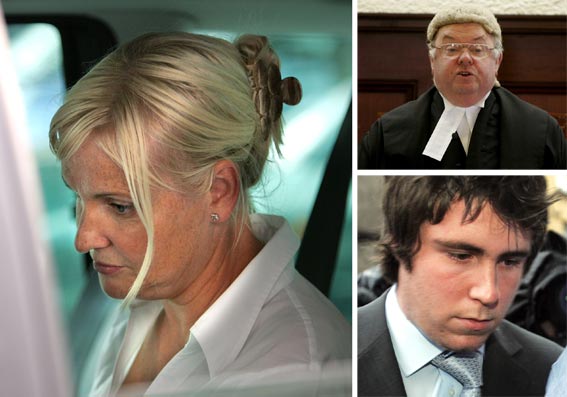Mixed week for High Court judge

Judge Paul Carney was wrong in the Pádraig Nally trial but found right in the Wayne O'Donoghue case. By Vincent Browne
On 24 January last, Majella Holohan, mother of Robert Holohan, who had been killed by his neighbour and friend, Wayne O'Donoghue on 4 January 2005, delivered a powerful and moving victim-impact statement to the Court of Criminal Appeal in Cork, prior to the imposition of a sentence.
She had submitted her proposed statement in advance to the prosecution legal team who had passed it on to the defence team. But in the delivery of the statement she said: "Our doctors have told us to try and get on with our lives but how can we, knowing there was semen found on my son's body?" (No such evidence had been adduced in the trial.)
In her judgment in the Court of Criminal Appeal on 18 October, the presiding judge, Fidelma Macken said, "The person who proposes making the [victim impact] statement in court should be warned by the sentencing judge that if in the course of making the statement in court they should depart in any material way from the content of the statement as submitted [to the legal teams and the judge in advance], they may be liable to be found to have been in contempt of court."
It was a tough rebuke by inference for the distraught mother who is likely to be further distraught by it. In contrast, the trial judge, Paul Carney, is likely to feel a sense of vindication in that the Court of Criminal Appeal found his "lenient" four-year sentence for the manslaughter of Robert Holohan was correct.
There were four issues at stake in the appeal against the alleged leniency of sentence:
• that in sentencing Wayne O'Donoghue the judge failed to have regard to the disparity of age between Robert Holohan and Wayne O'Donoghue;
• that he failed to have regard to the evidence of the injuries suffered by Robert Holohan;
• that he failed to have regard to the concealment engaged in by Wayne O'Donoghue of his crime and engaged in a 'search' for the body of Robert Holohan, knowing where the body was and what had happened;
• that too much weight was given by the judge to Wayne O'Donoghue's plea of guilty when he was on the verge of being identified as the culprit by gardaí.
The court found:
• that the issue of age disparity was not a significant factor in the case;
• that the injuries Robert Holohan suffered were indeed, as Paul Carney had said in his statement on sentence, more in the nature of "horse-play" rather than anything else;
• that whereas Wayne O'Donoghue could have been charged and probably convicted of other offences to do with his role in the concealment of the crime, this was not a factor that the judge should have taken into account but that he (Paul Carney) did have regard to the issue of concealment in considering the impact of the crime;
• that, whereas Wayne O'Donoghue might have thought at the time of owning up that gardaí suspected him of the crime, there was no question of him being caught "red-handed" and it was therefore correct that his plea of guilty should be taken into consideration in deciding the sentence.
Paul Carney must have been especially relieved at this outcome because another decision of his – in the case where the Mayo farmer Pádraig Nally had killed the Traveller John Ward – had been set aside in the previous week.
In that case he had wrongly (in law) refused to allow the jury consider whether Pádraig Nally was innocent of either murder or manslaughter in the case. He had said a finding of innocence, given the facts, would have been perverse, so he withdrew that option from the jury. In doing so he was acting in breach of clear guidelines set down by the Supreme Court in a previous case. When this was later brought to his attention he had blamed barristers for failing to draw this to his attention at the time.
